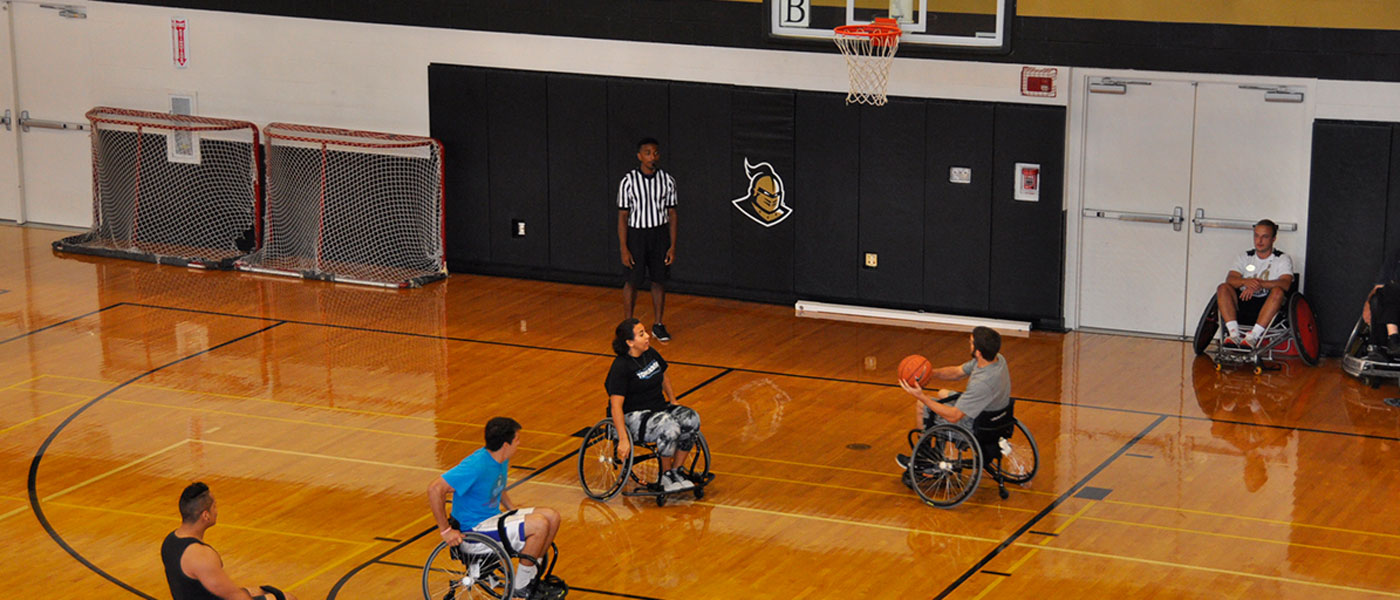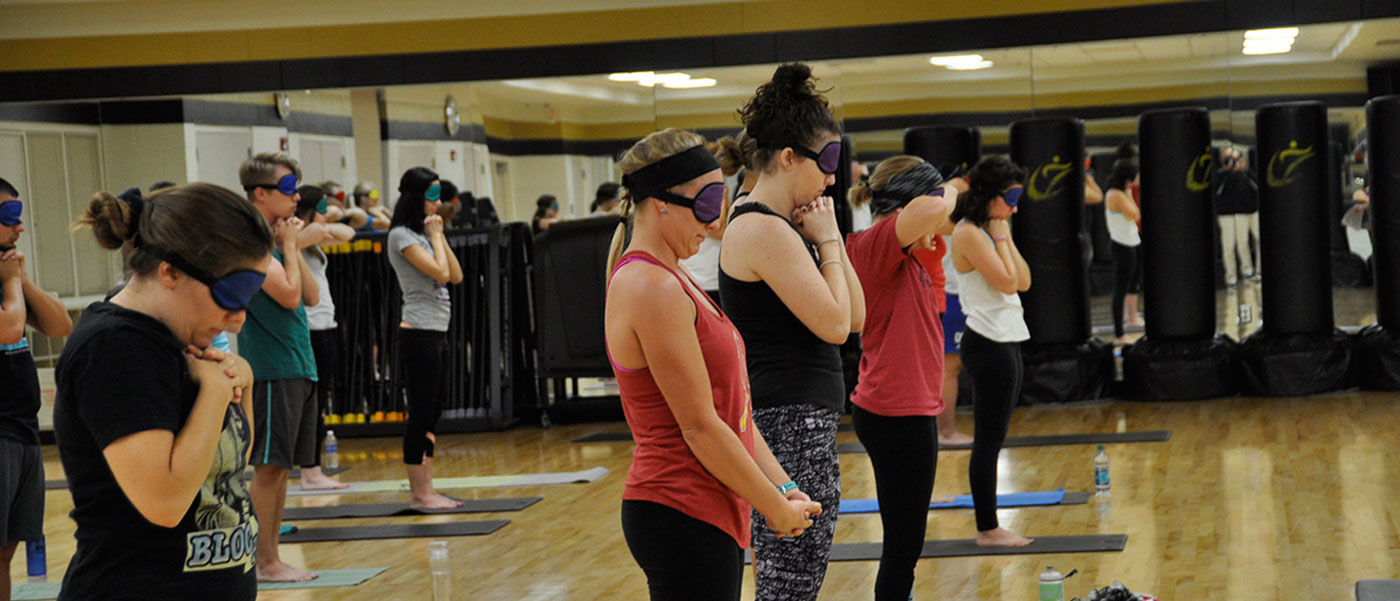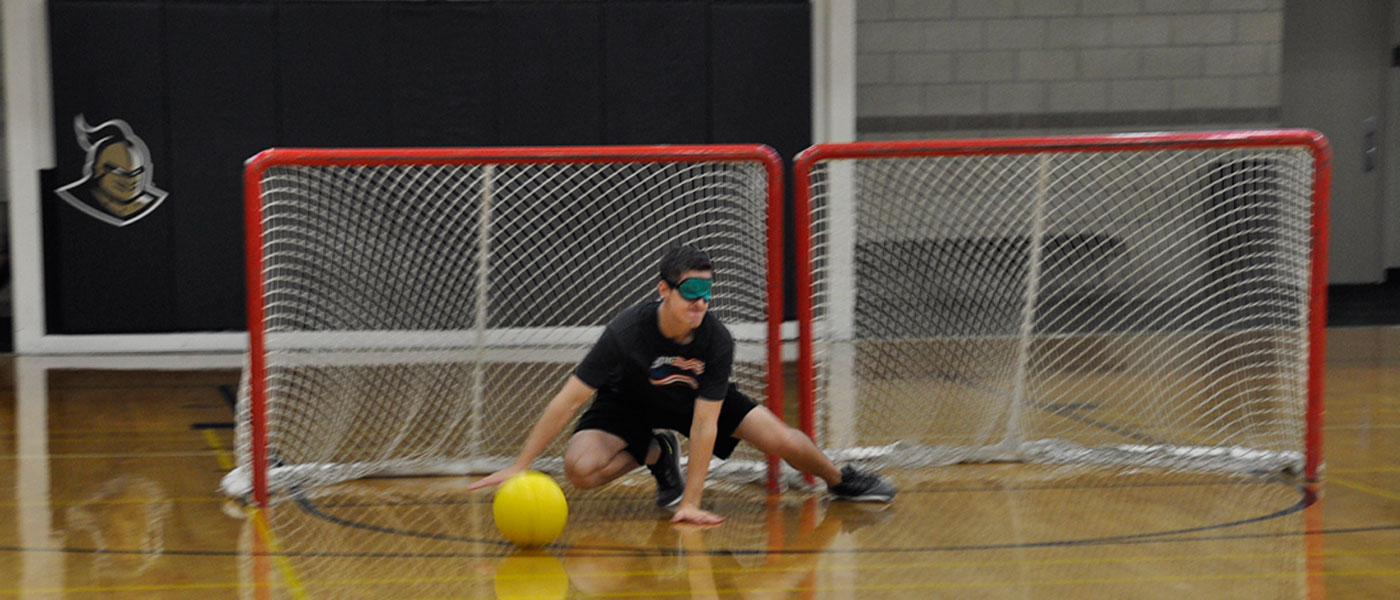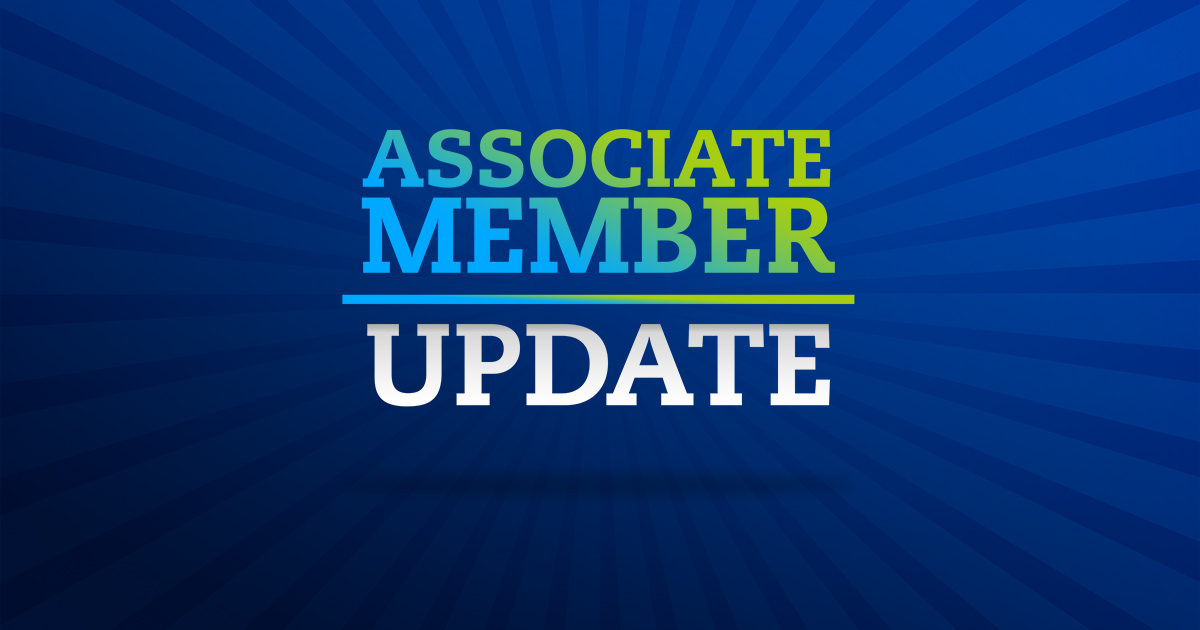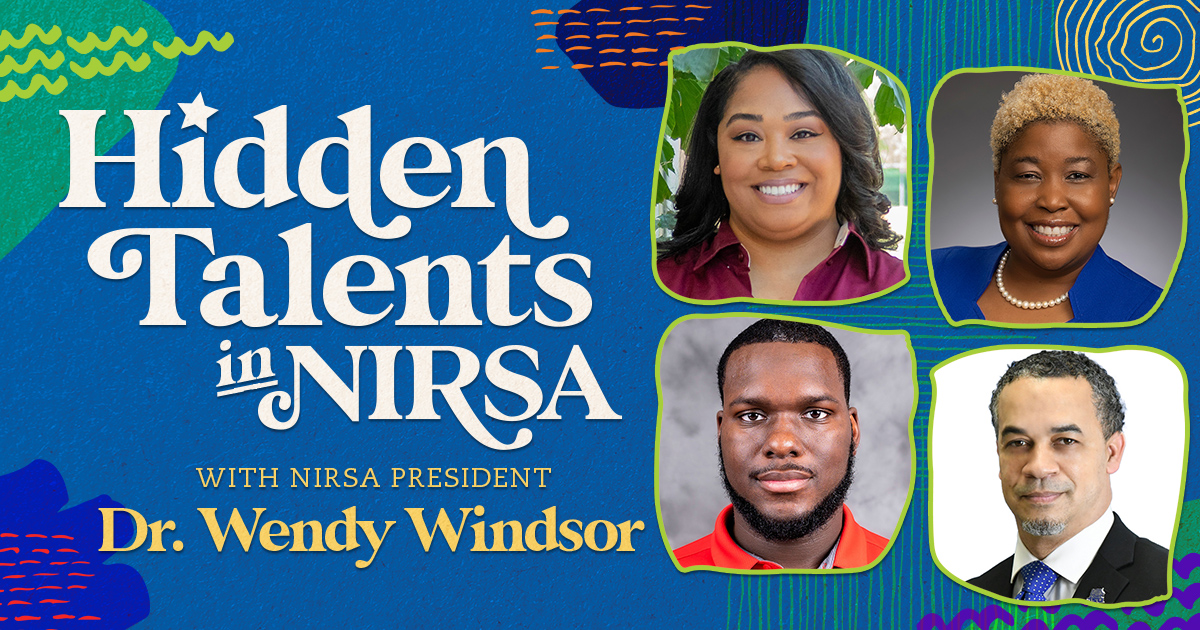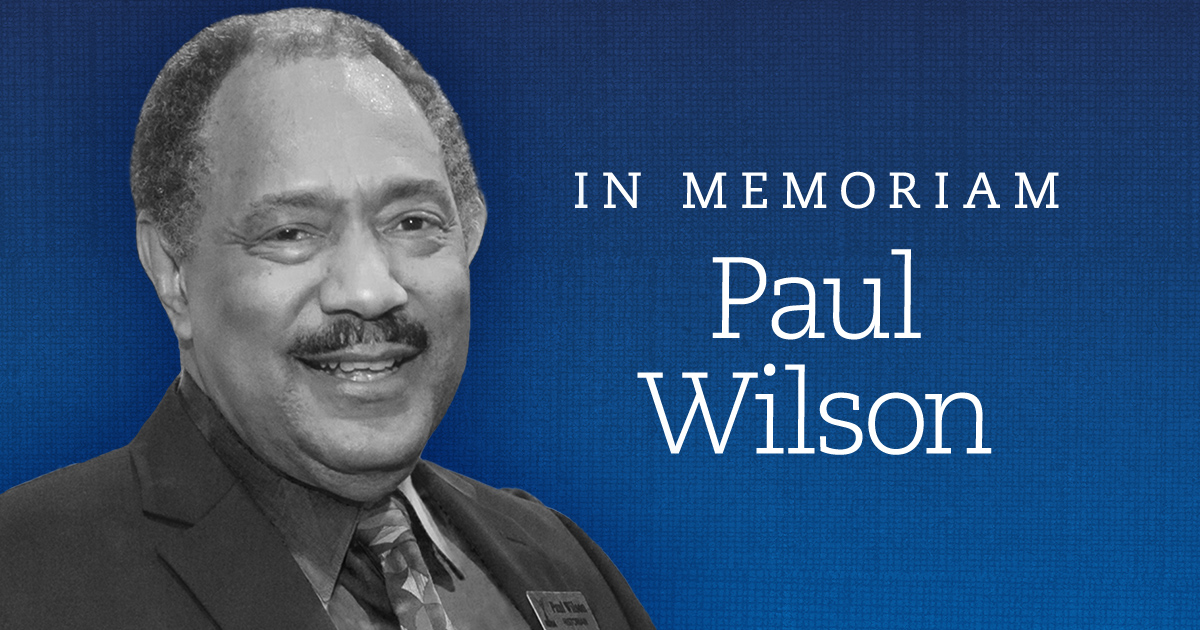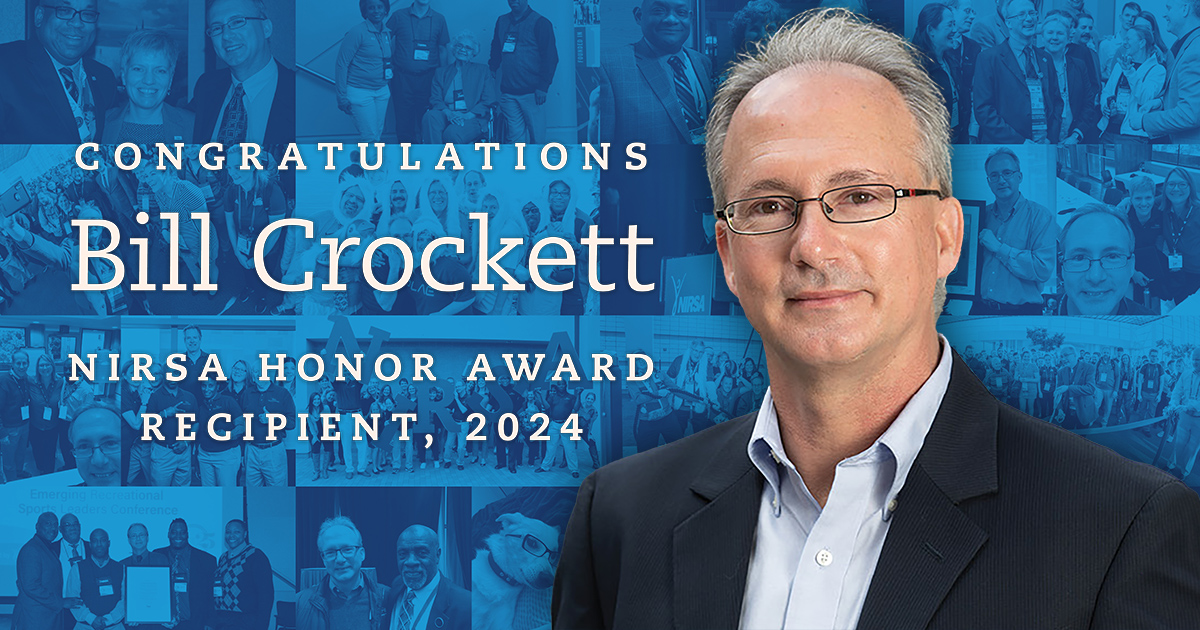By Scott Mauro, Marketing and Communications Manager at UCF Recreation and Wellness Center
When you work in student affairs, your daily goal as a professional is to make good on a promise to enrich students’ experiences beyond their expectations. Mission and vision statements are a lot like promises. Part of NIRSA’s mission, for example, is a promise to be the leader in the advancement of the collegiate recreation field. The University of Central Florida’s Recreation and Wellness Center’s vision statement is “To be inclusive and adaptable to the needs of all UCF students.” This promise continues to help the UCF RWC—a 150,000 square-foot facility located on the south side of the nation’s second-largest campus—push the limits of inclusive and adaptive services. The RWC, which is funded by the Student Government Association, helps students with disabilities soar to new heights—and people are beginning to take notice.
In its fourth year, the scope of UCF’s adaptive and inclusive recreation services continues to evolve. The program features several components including Student Assisted Workout (S.A.W.), which is a personal training program for students with disabilities; a wide range of inclusive equipment and services; and an annual day-long showcase called the Inclusive Recreation Expo every fall. Comprehensive and diverse programs like Adaptive and Inclusive Recreation are a part of the RWC’s goal to continually enrich campus life and advance UCF’s educational mission for all students. But programming is just part of it. UCF prides itself on being “America’s Partnership University,” and collaboration with on and off-campus partners has been a key to the RWC’s ongoing adaptive and inclusive recreation success.
The Student Assisted Workout (S.A.W.) program
A great example of the collaborative spirit is the S.A.W. program. This program’s partnership with the UCF Doctorate of Physical Therapy Program, the source for the majority of the S.A.W. trainers, has been instrumental to its success. The S.A.W. trainers help UCF Knights with disabilities set goals and execute comprehensive exercise plans. These trainers do all this while working closely with faculty members from the physical therapy program.
This partnership has really paid off. The S.A.W. program has more than doubled in a year, going from approximately seven clients in the fall of 2014 to 16 clients this fall. The client list includes 11 students with physical disabilities and five students with intellectual disabilities. In 2013, the RWC had 300 S.A.W. sessions. In the past year, that number has grown to more than 600.
RWC Fitness Coordinator Valerie Wexler—who oversees the S.A.W. program—explains that “during the one-on-one sessions, the S.A.W. trainers assist the clients with transfers, equipment, and facility access. The S.A.W. trainers are also able to introduce different exercises and equipment to the clients. Once involved with the program, clients typically continue to explore and enjoy other services the RWC has to offer.”
Another innovative aspect of the program is how trainers have found creative ways to use equipment not typically considered adaptive or inclusive in the workouts. Valerie says trainers routinely use Bosus, TRX, Thera Bands, Free Motion Duel Cable Cross, and medicine balls in the S.A.W. exercise plans. There are also plenty of inclusive pieces throughout the facility, and Valerie says the RWC just recently expanded its list: “The newest addition to our inclusive line is SleppSolutions’ Free Hands Fitness. We added the free suspension trainer this summer.”
Inclusive and adaptive offerings
The RWC continues to expand its inclusive and adaptive offerings throughout the several program areas in the facility. UCF Intramural Sports has several key one-day tournaments throughout the year including wheelchair basketball and tennis, beep baseball, Paralympic Sports GoalBall, and Paralympic Sitting Volleyball. USA Sitting Volleyball actually partnered with the RWC on a tournament in November, which included a clinic for students hosted by USA National Sitting Volleyball team member Nicky Nieves who grew up in Kissimmee, Florida (host of the 2016 NIRSA Annual Conference & Recreational Sports Expo), about 30 minutes from the UCF campus.
Perhaps the most talked-about addition to its inclusive and adaptive offerings comes from the RWC’s Outdoor Adventure Center: the Adaptive Climbing Program. A harness called the haul system—which is connected to ropes and pulleys—allows students with limited mobility, prosthetics, and even partial paralysis to scale the RWC’s 41-foot climbing tower. Staff members from the Outdoor Adventure Team go through special training to get certified to belay the clients who climb the tower using this system.
Katherine Torres—who’s worked for nearly two years as the RWC’s Adaptive Recreation Lead and has used a wheelchair all of her life due to weakness in her lower extremities—has made several trips up the tower. A handful of Central Florida media companies have covered Katherine’s climbs. She says it’s wonderful for the program to receive such recognition: “A lot of students with disabilities are unaware of the resources available to them here on campus. So with the media doing stories on the system, it helps to get the word out about this amazing program and the other programs we offer here at the RWC.” The UCF Office of Diversity and Inclusion recently honored Katherine’s work with the 2015 Student Diversity and Inclusion Impact Award.
To continue expanding its inclusive offerings, the Outdoor Adventure Team recently added an adaptive kayak to its fleet of rental equipment. The modified kayak has a more stable area for students to sit in and features a lighter oar to help students move through the water. UCF’s Sports Club and Adaptive Recreation Coordinator Andrea Snead—who also serves on NIRSA’s Commission for Equity, Diversity, and Inclusion—says she’s worked hard in the past 18 months to bring the kayak to UCF: “Having the opportunity to make Lake Claire a more accessible facility is a step in the right direction toward the goal of making all of the facilities we run open to all students regardless of their ability.”
The Inclusive Recreation Expo
The RWC’s annual signature inclusive event is the Inclusive Recreation Expo. In October, for the second consecutive year, the RWC set attendance records at the event. During the Expo, students of all abilities participate in several programs including blindfolded yoga, a Unified Basketball Clinic, goalball, wheelchair basketball, and another wheelchair sport called quad rugby.
Partnership is again a huge part of the event’s success. Since the Expo began in 2012, the RWC has partnered with off-campus teams and organizations like the Orlando Magic Wheels, the Orange County Clash, and Special Olympics Florida. On-campus partners like the Multicultural Student Center and Student Accessibility Services have also been crucial to the growing popularity of the event.
For the past two years, Special Olympics Florida has provided the Inclusive Recreation Expo with Unified Basketball teams. In Unified Basketball, players with intellectual disabilities (known as athletes) are partnered with students or adults without disabilities (known as partners). A 12-person roster includes six players from each classification. Herley Pellew, Manager for Project UNIFY for Special Olympics Florida, says Unified Sports are a unique opportunity: “I think it’s an eye opening experience for partners. Some of these athletes have been stereotyped most of their lives. When these partners and athletes come together they get rid of those stereotypes and they say, ‘Listen he’s just a kid, just like me, and we just want to play sports together.’”
Looking to the future of inclusive and adaptive recreation
While it’s clear the RWC’s inclusive programs and services have grown by leaps and bounds in the past few years, Andrea believes the RWC will continue to be progressive in setting national standards in programming for students with disabilities. “We are only at the beginning stages of making sure we continue to set high standards for ourselves when it comes to diversity and inclusion,” she says. “We want to be progressive and aggressive about adding services, equipment, and programs for all students at UCF. We see ourselves as campus leaders, and recognize what student recreation means to students of all abilities.” After all, the RWC’s vision statement “To be inclusive and adaptable to the needs of all UCF students” is a promise.
For more information on the University of Central Florida Recreation and Wellness Center’s Adaptive and Inclusive program, please contact RWC Coordinator Andrea Snead.
Photos courtesy of University of Central Florida, Christina Astore, Ayana Campbell, Scott Mauro, Brittany Rainbow, and Laren Schoepfer.


